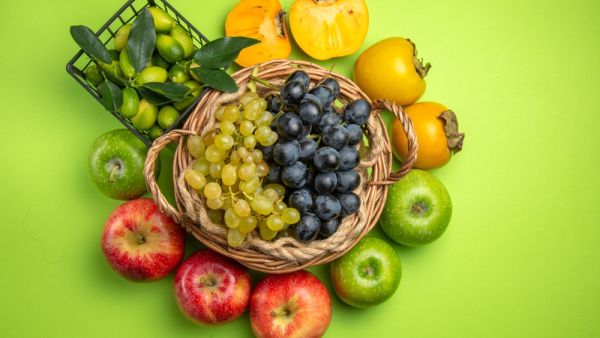ALBAWABA In the quest for a healthier lifestyle, it's easy to fall prey to diet myths that promise quick fixes and miraculous results. With the rise of social media and online influencers, these myths can spread rapidly, often leading to confusion and unrealistic expectations.
Here are some of the top diet myths that have been trending, along with the truth behind them.
1. Myth: Carbs Are the Enemy
One of the most persistent diet myths is that carbohydrates are inherently bad and should be avoided to lose weight. This misconception has led many people to cut out entire food groups like bread, pasta, and even fruits.
While it’s true that refined carbs (like sugary snacks and white bread) can contribute to weight gain, complex carbohydrates (found in whole grains, fruits, and vegetables) are an essential part of a balanced diet. These carbs provide the body with energy, fiber, and essential nutrients. The key is moderation and choosing the right types of carbs, not eliminating them entirely.
2. Myth: Skipping Meals Helps You Lose Weight
The idea that skipping meals can help you shed pounds faster is another widespread myth. In reality, skipping meals can lead to overeating later in the day, as hunger builds up and leads to poor food choices. Additionally, skipping meals can slow down your metabolism, making it harder to lose weight in the long run.
Eating regular, balanced meals helps maintain steady blood sugar levels, supports metabolism, and prevents unhealthy snacking.
3. Myth: Fat-Free or Low-Fat Foods Are Always Healthier
The “fat-free” or “low-fat” label on food products can be misleading, leading many to believe that these options are always healthier. However, removing fat from foods often means adding extra sugar, salt, or artificial ingredients to maintain flavor and texture.
Healthy fats, like those found in avocados, nuts, seeds, and olive oil, are essential for the body and can actually help with weight management by promoting satiety. Instead of focusing on fat content alone, it’s important to consider the overall nutritional quality of the food.
4. Myth: Detox Diets and Cleanses Are Necessary for Weight Loss
Detox diets and cleanses have gained popularity as a quick way to “reset” the body and kickstart weight loss. These diets often involve consuming only juices, teas, or other liquids for several days. However, the body is naturally equipped with organs like the liver and kidneys that efficiently detoxify and cleanse on their own.
Restrictive detox diets can lead to nutrient deficiencies, muscle loss, and a slowed metabolism. A balanced diet rich in whole foods, fruits, and vegetables is a far healthier way to support your body’s natural detoxification processes.
5. Myth: You Need to Go Gluten-Free to Be Healthy
The gluten-free diet was initially developed for people with celiac disease, a condition where gluten causes severe digestive issues. However, the trend has spread to people without gluten sensitivities who believe that cutting out gluten is a healthier choice.
Unless you have celiac disease or a diagnosed gluten intolerance, there’s no evidence to suggest that a gluten-free diet is healthier or will help with weight loss. In fact, many gluten-free products are highly processed and may lack important nutrients. A diet based on whole grains, whether they contain gluten or not, is a better approach for most people.
6. Myth: Eating Late at Night Causes Weight Gain
A common belief is that eating late at night leads to weight gain because the body stores the calories as fat while you sleep. However, the total number of calories consumed throughout the day and the quality of those calories are more important than the timing of your meals.
While late-night snacking on unhealthy foods can contribute to weight gain, eating a balanced meal in the evening doesn’t automatically lead to extra pounds. It’s more about what and how much you eat, not when you eat it.
Diet myths can be tempting, especially when they promise quick and easy results. However, understanding the truth behind these myths is essential for making informed decisions about your health. A balanced diet that includes a variety of whole foods, eaten in moderation, is the most sustainable and effective way to achieve long-term health and wellness.
Before making any drastic changes to your diet, it’s always best to consult with a healthcare professional or a registered dietitian.








